November, 2012 and updated
Personal responsibility and preservation of power ..
This was written just before and after the birth of our son, and was my take on the medical system. I could not vouch personally for more than a few hospitals, perhaps six to eight, but stories from over the years, including doctors being murdered by enraged patients or family, confirms that my views expressed here are representative.
What I saw every day –
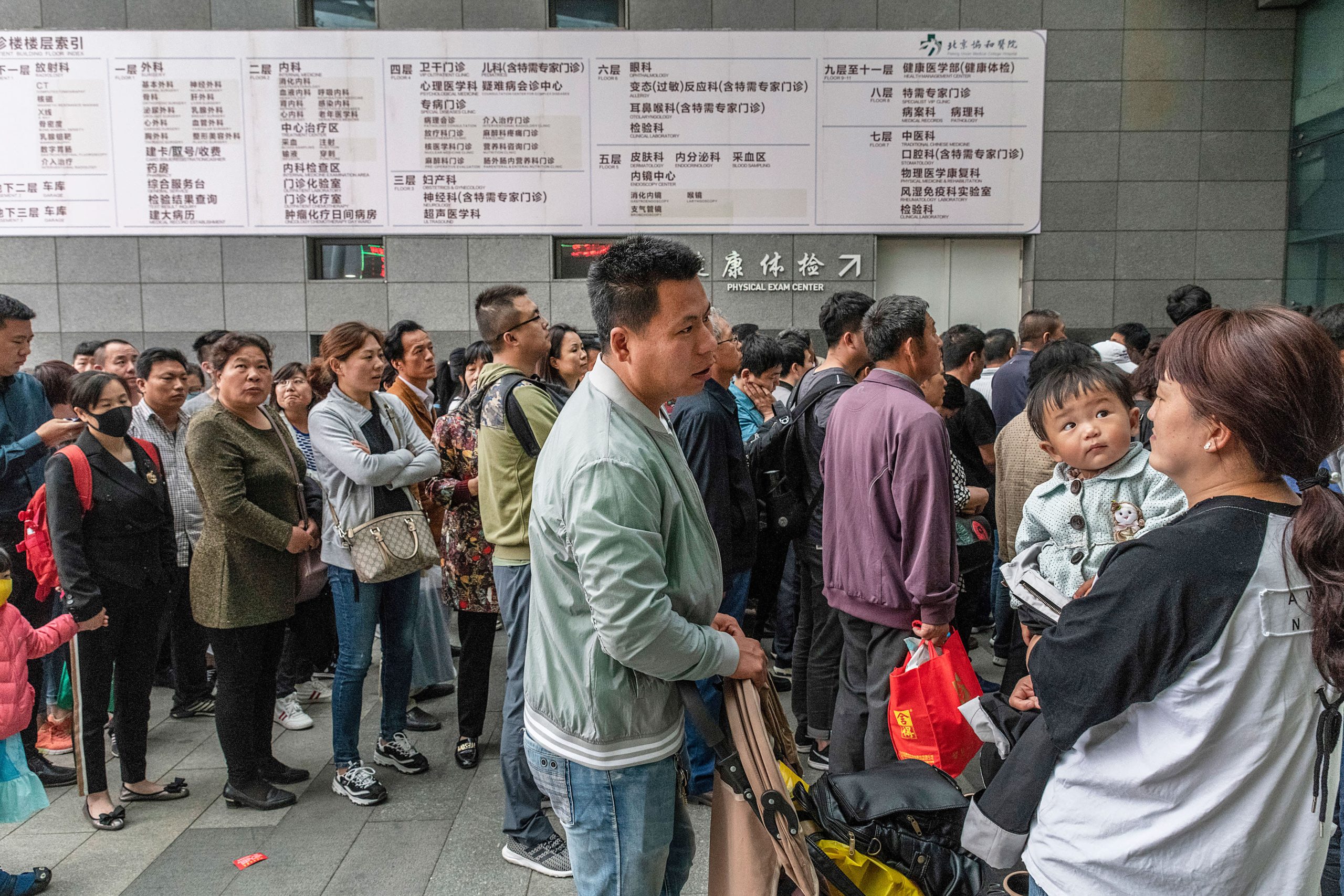 Source: Gilles Sabrié, The New York Times at
Source: Gilles Sabrié, The New York Times at
https://www.cnbc.com/2018/10/01/chinas-health-care-crisis-lines-before-dawn-violence-and-no-trust.html
Just for fun, I looked online for stock photos of Chinese hospitals, doctors, and patients. This site below has dozens of photos of what I never saw any day at any time. Take a look, just for fun –
https://www.istockphoto.com/photos/china-hospital?sort=mostpopular&mediatype=photography&phrase=china%20hospital
My article below is from 2012, but not inaccurate now for that. The Systemic problem cannot be solved by Mr. Xi, regardless of how stringent the anti-corruption campaign becomes. It is common for people to offer hongbao (red envelopes) as gifts to doctors, teachers, business associates, and government officials from whom one would appreciate a good result. The anti-corruption campaign does not change that behavior, nor does it change the grinding down of people as they try to obtain medical services. The picture below is representative of the typical room in the pregnant women’s hospital. Four or five women side by side in a room, before and after the birth. The VIP room – a single room – might require a hongbao.
Bribery serves as life-support for Chinese hospitals. Arku Jasmine. Graphic Online, July 24, 2013.https://www.graphic.com.gh/international/international-news/bribery-serves-as-life-support-for-chinese-hospitals.html
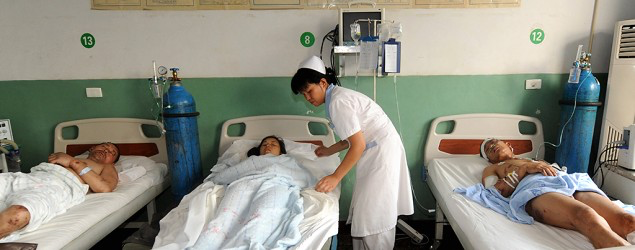
Those who followed my reporting over a span of years noted that my attitude in China changed when Qing became pregnant. As I read back, that seems right. My concerns then became about more than head colds and what amazing stimulus was I going to experience next week. I was in the day-to-day lived experience of 1.3 billion other people. Oh – one more thing. Now, in 2018, there is no evidence that Keynes is the author of the quote below. So, I should say, attributed to Keynes by Samuelson.
Calling All Libertarians!
A couple of years ago, I wrote about Brenna and I going to the hospital to check on a chest and throat cold, and I described how easy and efficient and inexpensive the experience was. Now, I find myself in the position of Keynes when challenged by a political rival for changing his views on some issue of current affairs, retorted, “When the conditions change, I change my mind. What do you do, sir?”
I wrote a couple of weeks ago about the preservation of the System in hospital design.
The System design, for control and power, is preserved. And really, power conservation is not so unusual. But what I want to write about now is what accompanies power conservation, and that is the conservation of stupidity and laziness and acceptance of the status quo and “that’s not my job” attitude, even among people who are otherwise reasonably intelligent and have at least some modicum of training. And how the System allows for that. The System requires grinding people down. The tools are mystery, lack of information, long lines to receive – not service, but a ticket to get service later. Lack of information is the key. When people do not have the ability to make sense of the System, whatever it is, they make up stories, including stories about leader power and efficacy of at-home remedies. And when people do get information from an official source, they have to choose – to rely on that message as Truth, or mistrust it as they have learned a thousand times before. In the Chinese medical system, one confronts official mystery head-on.
In 2012, there began some noise about western hospitals looking to go to China – presumably in search of profits, not better health care for the world. Even at that time, I thought – from my completely uninformed position in the American and Chinese medical markets and systems – that this was a poor plan. To come in to a System, to have one entry point in a complex arrangement of sinews and choke points and flows of goods and patients and money – and expect to either reform the System or extract profit from it – this would seem an ultimate hubris. Now, in 2018, I don’t see much change from 2012. Perhaps there has been some due diligence going on. The medical system is the government system in China. There is a small private piece of the market, but it is of little consequence overall. In the vast majority of cases, it is the government hospital, government doctors, that Chinese will choose to trust. After all – as has been the case in China for two thousand years – a private provider of a service has an incentive to cheat you. In theory, the government provider should have no conflicted goals.
There are private market hospitals in the major cities including Hangzhou, particularly for pregnant women. We looked at a couple of them. They are close approximations to what I would expect from a pregnant women’s hospital in the US. I was impressed. Qing was more circumspect. The hospitals are designed to serve 22-year old Chinese girls, who can pop babies out like candy. Qing was almost twice as old, and the private hospitals were really not set up for medical complications, which old moms might have. We chose the state-owned Hangzhou Pregnant Women’s Hospital, a couple of blocks from Xihu. This is a highly recommended hospital with the top rating of hospitals in China. I used several connections to get us a VIP room at the hospital, which usually required not only guanxi but a reservation four or five months in advance. Calls were made, and our reservation was confirmed. Pretty much like the Hyatt, which was also just a couple of blocks away. The story begins –
We are at D-Day minus 1. After class, we leave for the hospital, with suitcases and bags full of household goods. The plan is to stay for a week, since the delivery is to be by Caesarian. Qing is pretty small, and she is not 19 years old, and natural birth might be tougher. The idea has been to do the birth by Caesarian since the beginning of seeing doctors, about 9 months ago.
We got to the hospital about 1:30 in the afternoon, Qing and her sister and I, and we went to the 8th floor of building 2 to see the doctor. This is the doctor Qing has seen for the last few months, and she is supposed to do the delivery tomorrow afternoon, after lunch. Say, about 2:00. This was just a quick hello, look-at-the-stomach visit, about ten minutes tops. Then, off to pay the money. Everything is paid in advance. Makes it easier for the hospital if you have complaints or a crisis, and want to take issue with the service. They already have – not only your money, but your bank account information. No credit cards – no intermediary to assist in a dispute, a la American Express. Cash, or direct withdrawl. The hospital can presumably drain your bank account, if they want. Not sure they need the nicety of a signature on a receipt, and, as I tell my negotiation class, so you have a receipt. If you don’t agree with the result, or have a problem, what to do, now? In libertarian China, cash is king. And people have to take personal responsibility for their health care, in ways that Americans could not imagine.
At about 3:00, we were in the room and registered. Not bad, considering all the prior SBB (stupid beyond belief) events of the previous months. This was the process.
Signing in took only about ten minutes, as well. Much faster when people have to take personal responsibility for their medical care. I mean, there was no worry about insurance. This is due to the manner in which health insurance works in China. Instead of the insurance company standing between you and the medical establishment, the insurer simply reimburses you for your prior expenses. You collect all the bills, invoices, statements you have accumulated over the last 9 months, and submit them as a package to the insurer.
The insurer then decides how much they want to pay, and after some time, they send you money. There does not seem to be any knowledge anywhere about what insurers will pay for and not pay for – certainly, no agent standing between you and the insurer. There does seem to be general knowledge that pregnancy is not considered an insurable event – I mean, personal responsibility again – if you are pregnant, that is your doing. You probably had a hand in the deal, or were at least in some way complicit, so this puts you in a moral hazard position. You could have not gotten pregnant, had you just been careful. How can we insure against such irresponsible behavior?
So the insurance company will pay for some things, and pay for some parts of pregnancy and childbirth at a lower rate. Apparently, you don’t know what they will cover or not, and there is no negotiation involved. As with many things in China, you simply take what you get. If you want to know why something did not get paid, you confront the System. Don’t forget the end-of-discussion put-off – ‘No why.”
The pay-in-advance health insurance system does have additional benefits for the insurance companies. Can you keep straight all the invoices and bills for medicine, and doctors, and tests, and hospital visits, for a major surgery? Think you might misplace one or two in the battlefield chaos that characterizes walking around the hospital in China? You are standing in line, to pay, to get a number, to see the doctor, to get a test, running from floor to floor without clear directions as to which office to go into, all the while keeping your medical records and receipts and schedules in a clear plastic pocket file. You know, the kind of files that you might put receipts in, to add up at the end of the year to do income taxes. That is the preferred means of storing medical records here. All this running around is done while pregnant, and fighting through the hordes of people all trying to do the same deciphering of the System. God forbid you should have to go to the bathroom somewhere in the process, and lose your place in line. You are constantly taking pieces of paper out of the pocket file, putting paper in, showing to this clerk or nurse or that one, making sure the paper is stamped, and stamped properly. Think you might misplace a receipt?
If you do need a duplicate bill for some piece of the service, are you really going to go stand in line for another couple of hours at the hospital to do that? Take a day off from work to run through the labyrinth? Maybe better to just eat some bitterness, as is the age-old phrase in China.
The insurance companies make out ok in another respect. The sheer volume of crowds, and the delay, and the personal care
of medical records (with attendant possibility of loss, or false recording, or missing information) mean that many illnesses that are covered by insurance probably do not get treated, or they get treated to a very low level of quality. The government claims that 95% of Chinese have health insurance. That is no doubt true, as true as any statement in extremity can be.
Cost savings from lost records, geographic isolation, and extremely limited coverage are passed on to the government and the insurance companies. And really, what good is an insurance system that can’t make money? In China, we should always be thinking of the greater good – that of the System. George Orwell understood very well.
Take heart attacks, or cancer. No doubt whatsoever that
the crowds and delay and general incompetence – not to mention lack of availability and coverage – kill a lot of
people before they would die in some other parts of the world. We have a new hospital not ten minutes driving from our apartment. But in the difficult world of traffic and non-yielding of drivers to emergency vehicles, that ten minute trip could easily expand to an hour or more.
And don’t forget that the largest businesses in China, including
the health insurance companies, are state owned. So the
government and the companies have some common interests -
they have moral hazard problems, as we say in micro class.
The State designs the health care system. The insurance
companies live in it. But both have an interest in keeping medical care costs down. I am not trying to be too flip about this – a little, but not too much – the organizational
design reminds me of the joke about hitting a pedestrian
with your car – better to kill him, than injure him. Back up and roll over him again, if you need to. The State designs
the system for delay, and inattention, and grinding, from building design to scheduling of visits to provision of care to reimbursement for expenses. The State
helps the insurance companies by keeping too many people
from getting care that is too good. Good care would mean more costs for the insurance companies. Lower profits mean lower GDP growth. It is really the case that some Chinese just choose not to go to the hospital rather than enter the System.
In the US, we have had the discussions about providing health care for most Americans. The concept is that providing decent preventive care, and decent routine care, will prevent much more costly emergency care when there is a crisis. But this is different systemic thinking than in China. The health care system does not work well for many people in either place; but I venture to say that the system works better for the majority of people in the US, even at ruinous costs in premiums, than it does in China, where premium costs are less but service and availability and coverage and information are much less.
Keep in mind that we are living in the capital of one of the three or four wealthiest provinces in China. We are in the Zhejiang Province Pregnant Women’s Hospital, the hospital generally acknowledged here as the best place to be.
So other hospitals, in other places, are not as good, even in Hangzhou. And there are other cities in Zhejiang Province. And there are other cities in China. And there is the rural countryside, where some medical care is now provided but sort of at a “first-aid” level of service. There is a lot of faith in folklore and tales and medicinal herbs and Chinese culture, though. Easier, faster, less expensive, and for many things, just might work.
In the US, the insurance companies want the government to provide coverage, or demand that people buy it. The companies will make out like bandits – more customers, more profits. But in China, my guess is that there is no such
push from insurance companies to provide more health coverage for rural people, or to improve the level of care for urban people. More coverage for rural people just means that the government has to pay more to the insurance companies for the care. A higher level of care would mean that some people would live longer, and require more services. And improving the quality of care would just cost more money. Where is the benefit? How does providing more care improve GDP?
You begin to understand how big companies in China can be
so profitable. I mean, there are plenty of other reasons -
sweetheart contracts, and soft budget constraints on state-owned companies, and cooking the books, if needed. But
costs of providing services, whatever the business, are low –
labor costs are typically 70% or so of business costs, even in the US. In China, land costs are a much greater portion of overall costs than in the US – either acquisition costs or rental costs. And labor is cheap in China, even with rising salaries and some overstaffed organizations. And, in general, the level of service provided, in relation to the costs, is poor. For many things, the costs to the customer in China are higher than in the US – cars, apartments, clothes, electronics, household appliances, furniture. There is a large
enough middle class to pay for the extra costs. But there is a huge part of the population that is left out of the market, and no short term way to bring them into the market. And, even
if a couple of hundred million more people can be brought into
the system, the quality of what is purchased is often quite poor.
You remember me bringing suitcases full of cosmetics, vitamins, baby formula, and electronics to China on my trips back from Chicago.
All the same goods are available in China, same packaging, quite possibly made in China, but people in China trust what is made in
the US, or at least imported into the US from China and then sent back to China, more than the same stuff made in China and distributed in China.
The lack of enforcement of quality controls, inability to control the supply chain, lack of enforcement of intellectual property laws, and the lax treatment of copying, means that people in China have no
confidence that the Louis Vuitton bag in the LV store in China is really an LV bag – or that the drugs purchased in the Watson’s, or the hospital pharmacy, are real. And they have no confidence that the
Elizabeth Arden face cream, or the Robitussen cough medicine,
same box as in the US, same labels, is not made in some
garage using waste products for raw materials. So, the same model Mercedes Benz car that is made in Germany costs much more than the Mercedes Benz car made in China, and the difference is not only in import fees and shipping.
So, suffice it to say that the level of service in the hospital reflects the design of the culture. The System is designed for mystery and conservation of power. The System is designed not to provide information, and not to make personal decision-making easy. When people cannot get the information they need to make decisions, they resort to whatever might seem to give them a hint as to quality – rumor, online evaluations (even if those, too, are fake), smell, trust obtained through personal guanxi. The result is a herd instinct – quality detected in one arena leads to great market demand, and distortion of prices. There is a saying about quality in China – “People don’t know. Money knows.” Meaning that price is a strong indicator of quality. That might be more true in China than in the US, with its regulation and inspections and ability to sue and free media.
The room in the hospital is actually sort of ok. We are paying an extra 40,000 yuan for one of the VIP rooms on one of the upper floors. The VIP rooms separate the officers, as it were, from the enlisted men. The lower floors have the enlisted women’s delivery and recovery rooms. Four or five women to a room, beds lined up like in an episode of MASH, although with the beds closer together and probably not quite as sanitary as the MASH units actually were.
We have one of the officer’s quarters rooms. Bright, lots of recessed lights, flat screen tv, microwave. As befits the Chinese interpretation of hospital room as hotel room, there is a mini-fridge, a bathroom with one of those Japanese electronic toilets that do all those things that we don’t really know about, and you are afraid to push any buttons because you don’t know what might squirt you and with what and where. And lots and lots of closet space. More than in our apartment. Shelves, places to store boxes, like people are moving in for a week. Which, actually, I guess, they are. There is a couch that folds into a bed, for the spouse or relative to sleep on. There is one not so nice chair, and a small dresser. The afternoon light is good, and we are high up enough to get only background traffic noise, which to me is ok – some awareness of what is going on outside, while our own intense attention and activity is focused inside.
It turns out that we needed the closet and shelf space. I did not understand why we left our apartment in Hangzhou with so much … stuff – towels and bed linens and plastic bowls. Turns out that we have rented a hotel room, although a fairly low class hotel at that. Customers bring their own bed linens, towels, bowels for washing and cleaning. The hospital provides very nearly nothing except a bed with one set of sheets and blankets.
It is now 4:15 in the afternoon. Qing is off doing other tests, ultrasound, blood tests. When she returned, I thought that we could order food from the hospital for lunch, or dinner. Wrong again. Our hotel room is not American plan. If you want food, you can buy it from the hospital restaurant (in the VIP rooms, you order from a menu. In the enlisted men’s – or women’s – rooms, your choice is the shitang, the dining hall, with military grade dining). In the majority of cases, the patient’s family brings food in from outside and mix and heat up ingredients in the room. It is up to the family to make sure the patient gets a proper diet, even after an operation – again, taking personal responsibility for health care. And again, this is the VIP room.
Events for tomorrow are shaping up as follows – morning, nothing. Watch tv. After lunch, about 1:30, the main events begin. Operation will take about 90 minutes, including recovery time, and they don’t give Qing any relaxant, or pill to get her a bit groggy, much before the operation. At this point, I am expecting to have some details to report by about 3:00 our time.
Signing off for now. More when events warrant.
Update. At 2:00 AM, Qing’s water broke. She called the nurse, using the call button. Nurse comes, surveys the situation. Does nothing. For those of you who have not yet figured this out, China can be a libertarian’s wet dream. It is personal responsibility all the way. As I mentioned before, the hospital room is really more like renting a hotel room. There is a bed, and some closets. But no towels, cups, glasses. One bottle of nearly empty hand soap. As with a hotel room, there is a shower with small bottles of liquid soap, shampoo, some
other kind of lotion. But no washcloths or towels. There is one box of tissues, and a reasonably full container of toilet
paper, but those items are not replenished when empty. Bring your own. What was in the room when we walked in was left over by the previous tenant – and not taken away by the cleaning staff. Personal responsibility dictates that you bring your own towels, washcloths, tissues, toilet paper. The hospital provides a room, and a once-a-day change of sheets. If the sheets get soiled, or wet – as in, a pregnant woman’s water breaking – well, too bad. You should have thought of that when you moved in. Wait until tomorrow to change the sheets.
So, back to water breaking –
There are people here who walk around with white uniforms, and are called “nurses,” but I doubt their competence. They refuse to answer any but the simplest questions, and they refuse to do any work. So the “nurse” who comes in to survey the damage from the water breaking does so, I think, only so she can file a report saying that the water broke. All the clean up, all the replacement of sheets, is done by anyone else in the room other than the people who are paid to work at the hospital. Same thing for assistance in bed pan use. In the hospital in China, you make provisions for your own bed pan changes. Personal responsibility. When the water breaks, the only reaction of the nursing and doctor staff is to ask us – us – whether we want to wait for the regular doctor, at about 2:00 PM as originally scheduled, do the operation now, at 2:00 AM, or try to do natural child birth.
The question is presented as you would ask someone if you want fries with that, and the answer is expected to be about as thoughtful. No questions allowed, other than the most simplistic. No information on what others do, no consideration of age or particular situation, no consideration of progress in having contractions. Personal responsibility. You decide about your medical care. When you decide, the hospital will deliver the goods, as it were. But you cannot ask about consequences, you cannot get information on common practice, you cannot ask what someone with – you know, some medical training – would do in a similar circumstance. For us, the demand for a decision is a false choice, since there is no harm in waiting at least until the morning, and that is what I suggest to Qing. She agrees. So we wait.
There are bed mats, of a sort, that one can put under a person who is draining anything, to absorb the liquids and sort of prevent the patient from having to lie in his or her own excretions. You can buy them in the stores in the US, for use at home. You change them as needed.
The retail market for such mats is big in China, because people have to bring their own to the hospital. And, you know, if you bring it, you should install it. So the nursing staff will not change the mats. You can throw the used ones in the corner, and maybe tomorrow someone will come by to pick it up. This is the VIP level of service in one of the most sophisticated hospitals in Zhejiang Province. God help you if have only one person to assist you in the hospital. You need two people to lift up the patient and remove the used mat and put the clean one underneath.
Which brings up a larger question – what happens to the person who does not have two or three or four family members who do not have to work, who can take days off at a time to provide round the clock care to a relative in the hospital? You can rent assistance – farm women are available outside the hospital to come in and be surrogate family for a few hours or a few days. You can imagine their level of care in changing sheets, bedpans, and cleaning up. My guess is that people who need to rent such help have a high rate of infections or other complications. But no need to worry about the hospital – personal responsibility. No worry about malpractice lawsuits.
The suggestion of trying natural child birth is an interesting proposal. In the prior 9 months, no one thought that natural child birth would be a good idea for Qing, given her physical size and age. Now, you know, neither the doctors nor the nurses nor the hospital generally have any information about Qing whatsoever. Patients provide their own medical history and “chart” information. The hospital has approximately the information that a hotel would have about its customers. So I suppose one could forgive a 14 year-old candy striper volunteer for making the natural child birth suggestion to Qing and me. But that is not supposed to be the sort of person we are dealing with. We are supposed to be talking to a “nurse” – one with surgical or at least obstetric experience – we are on the VIP floor of the Pregnant Women’s Hospital. So the only justification I can see for offering the natural child birth option is that the hospital would make more money. Now it is true, with natural child birth, the delivery cost is less, and a woman only stays in the hospital for 3 days instead of 7. But as is often the case, I think, Chinese are playing a different game than we would play in the US. A personal responsibility game. If you begin the natural child birth, and then have to switch to the Caesarian due to complications, then the hospital charges you for both procedures. I knew that. Trusting soul that I am, I asked that question a few days before, when we did the tour of the VIP floor. Beat them at their own game, that time, I did. So the suggestion to try natural child birth is actually to request an upgrade in service, albeit one that might end up costing us double. But, you say, what about the difference in the money received for 3 days hotel room rental instead of 7 days? Doesn’t that still provide a loss for the hospital, if you opt for the natural over Caesarian? Not necessarily. You have to consider turnover. If the hospital can process two births in the time once reserved for one, the increase in payments to the hospital is not so marginal. So – the hospital proposal is, try the natural child birth, which, if you find you cannot do it, we charge you for two births; and if you do the natural child birth, and it works, we can squeeze another customer into the schedule, with another birth and the attendant extra costs.
There are other complications. Our doctor, who works every day at the hospital, and only sees patients with a fair amount of guanxi, and probably sends most of her customers to the VIP floors, does not seem to have the same status on the VIP floors as the doctors assigned to the VIP floors. Perhaps this is because our regular doctor gets different kickbacks than the full time doctors on staff – I really don’t know, but that is a fair guess. The regular doctors assigned to the VIP floor get an end of the year bonus if they take business away from the other doctors, or something. Only speculation on my part, but I am confident that such a system could be possible. So the nurses on the floor are sort of pushing us in the direction of not waiting for our “regular” doctor to do the operation. The nurses probably get a cut of the doctor’s bonus.
Qing wanted to wait, but the contractions started coming pretty often, and by 7:00 AM, we are down to four minutes, lasting about two minutes.
We decide to do the operation now. The hospital staff concurred with our excellent decision – get Qing in and out early, and perhaps the processing of regularly scheduled Caesarian births could still be maintained. A woman comes by with a bed, to transfer Qing to the operating room. The woman does nothing. We (Qing’s sisters and I) transfer Qing to the bed. The hospital woman stands there. We put the railings up on the sides of the bed, and we wheel the bed down the hall. The woman does provide directions, though. I have to give her credit for that. Real personal responsibility would have demanded that we stop and ask for directions to the operating room, a couple of floors away.
Contempt is the word that comes to mind – my feelings about the hospital and staff. I know they are subject as well to the System grinding down process, but I cannot feel sympathy for their situation, since I detect none in them for us. I asked, or Qing asked, a “nurse” about the frequency of contractions, and strength, and duration. All are indicative of progress in birth process. I know that to ask such questions is high impertinence, but that is just who I am. The “nurse” was able to tell us that contractions five minutes apart were closer than contractions that were 10 minutes apart. She did volunteer, though, that stronger contractions were more significant than milder ones. She must have taken the extra credit classes in nursing school.
When we get to the operating room, all is ready – if they can start by 7:15, they can finish by 9:00 when the regularly scheduled customers start to arrive. Maintain the schedule. The doctors give Qing a sedative and anesthetic. They start to cut on her stomach before the anesthetic fully kicks in, but that is ok. The doctors remain on schedule.
Ben is born about 8:45 AM, November 2, 2012. He is fine, and Qing is as fine as she can be, given what she has gone through. Done by 9:00. Phew. Got in and out just in time.
At one point, about 1:30 in the afternoon of November 2, when Qing and the baby are trying to sleep after a trying morning, three different “nurses” came into the room in a span of about 25 minutes. This is what they did – one turned on the lights and woke everyone to check Qing’s blood pressure – which is already being constantly monitored on a screen, and certainly does not require turning on any lights; second one comes in to wake up Qing to take her temperature, which really doesn’t require waking her; third one comes in to take the baby’s temperature, waking him up in the process. My guess is that in the US, the over-regulated, too-expensive US, one nurse would be able to handle all three of those difficult tasks. She might come in just as you and the baby were trying to sleep, and turn on the light, but it would only happen once. By the way, this sort of invasion happened again, later in the afternoon, when again all of us were trying to get some sleep.
At about 4:00 in the afternoon, the “nurse” who is supposed to show us all how to put the baby on the nipple, found that the baby had pooped, and the diaper needed to be changed. I have already told you that “nurses” here do virtually nothing – they do not change out catheter bags, for instance – again, more taking personal responsibility for health care – but this “nurse” proceeded, probably against the training of the last 60 years of Chinese culture, to change the baby’s diaper for us, wiping off the poop from his butt. She did, however, expect to stop after two cursory wipes, when poop was still stuck everywhere on the kid’s bottom. I had to go from spot to spot, pointing out, three times, where this (deleted) “nurse” had yet to actually clean the kid off. If the kid got diaper rash, no doubt they would blame the ignorant foreigner parent.
Not changing out catheter bags, by the way, means that the family has to bring several plastic bowls, pretty big, to the hospital. So that is what the plastic bowls are for – to catch drainage or leakage in process. At least one to empty out things like catheter bags, or maybe store the soiled bed mats until someone can come by and take them away. My plan is to just dump all the waste outside the door, and let someone else clean it up. I think my years in China have taught me how to be more Chinese.
Pain management does get a high level of attention in the Chinese hospital. The key goal is to keep costs down, so patients are expected to just sort of grin and bear it. It is now Saturday morning, about 24 hours after the birth. Qing has been in some pain since yesterday afternoon, at the site of insertion of some drip. She has asked for something for the pain, but the “nurse” came in, talked to her for a moment, and assured Qing that everything was ok. She was offered some sort of temporary relief via a shot – but, personal responsibility again, we were warned that the shot would cost extra. For most people, pain should just be overcome, like a good communist soldier. For the cause.
And that is the end of it. Qing sent me home for some sleep last night. No doubt that I needed it, but I think she also sent me home to keep me from physically harming a “nurse” who tells me that pain is ok. Grin and bear it.
The thing that knocks me out is that the population goes along with this lunacy. If the “nurse” says it is ok, well, then. It is her experience that triumphs the pain of the individual. The patient is just supposed to be more stoic, more Buddhist, more Daoist, I dunno, offer it up to Jesus, or something. Grinding.
I am convinced at this point that it would have been less expensive, and more efficient, and with higher level of care, if we had just rented a regular hotel room in a hotel, and then hired a doctor and some real nurses to take care of Qing and the baby for a week. I would be willing to fly them over. There are reports of good expat hospitals in Beijing and Shanghai. But so far, not in the capital of one of the three or four richest provinces in China. After all, China is still a developing country. And for all those libertarians in the US, maybe progress in medical care in China has gone about as fur as it can go. Like the World’s Fair in St. Louis in 1904. With regard to personal responsibility, it is about the best of all possible worlds. “Progress” would almost certainly mean the hospital taking on more risk.
Some liberal bleeding heart reading this in the US might want to stick up for the underdog hospital and medical system in this story. After all, it is a different culture. It is China. Chinese women’s bodies are different from those of women in America, I am told. I don’t understand the culture. I don’t understand the wisdom of the System. 5000 years of Chinese culture. After all, 1.3 billion people got born here in the last 80 or so years. All their moms got through the process. Why should I impose my western standards on China?
This is the point at which the cultural relativists, already in agreement with libertarians on a lot of issues, have a problem with medical science and basic personal choice. Many women in China who have the means opt to go to Hong Kong, with western medical standards, to give birth. Screw 5000 years of culture. When I am in pain, give me medicine. When my baby needs care, give it to
her. Don’t tell me that pain or infection or inattention is God’s will, or Fate. I am choosing not to believe Todd Aiken, the Republican congressman from Tennessee who claimed that in the case of “legitimate” rape, women’s bodies “just have a way to shut that whole thing down.” In the cases of “legitimate” pregnancy, I don’t think women should just suck it up and bear the pain. Political scientists talk about two choices for people in a society – voice, and exit. Express your desires, work for change, or leave. The first choice, voice, is not doing Chinese women any good just yet. So, if they can get out for pregnancy and delivery, they get out or they finagle their way to more guanxi than I have.
I have been referring to the hospital here as a dongwu yi yuan – an animal hospital. But that is really unfair, to the animal hospitals in the US. Yes, it is true that people get treated like animals, and their personal care and time mean nothing to the System. Only the processing of people matters. There are pretensions to the contrary. The floor on the VIP floor is pretty clean. The lights in the hallway are bright. There are some plants, and I can look down the hall and see a “nurse” walking, but no horde of humanity pushing to cheat their way in line or get theirs before someone else does. But as with many things in China, the cleanliness and newness are form over substance. As in the Wizard of Oz, best to not look behind the curtain.
Enough for now. Written on my hospital breaks, when the niece and sisters are taking charge of changing catheter bags, and washing the towels that we brought to wipe off Qing and the baby, changing diapers, and bed mats. They really are much better at all this than I am. After all, it is China. They have much more of a sense of personal responsibility.

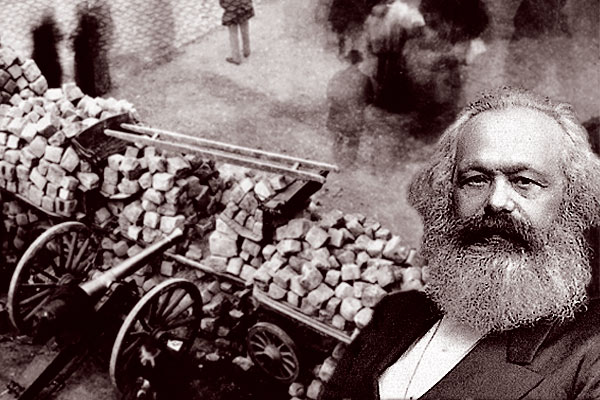
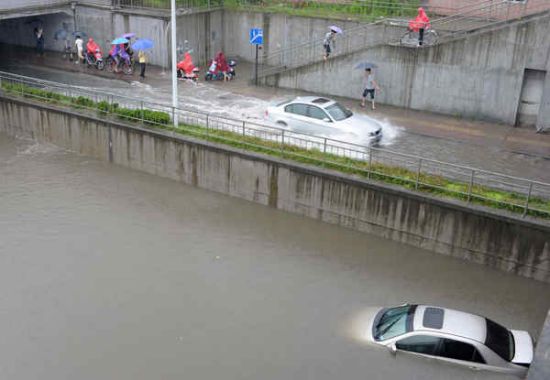
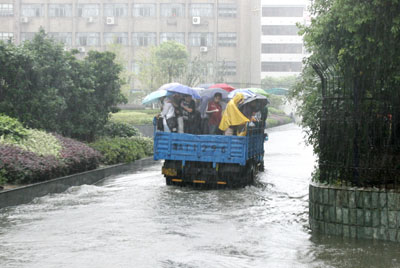
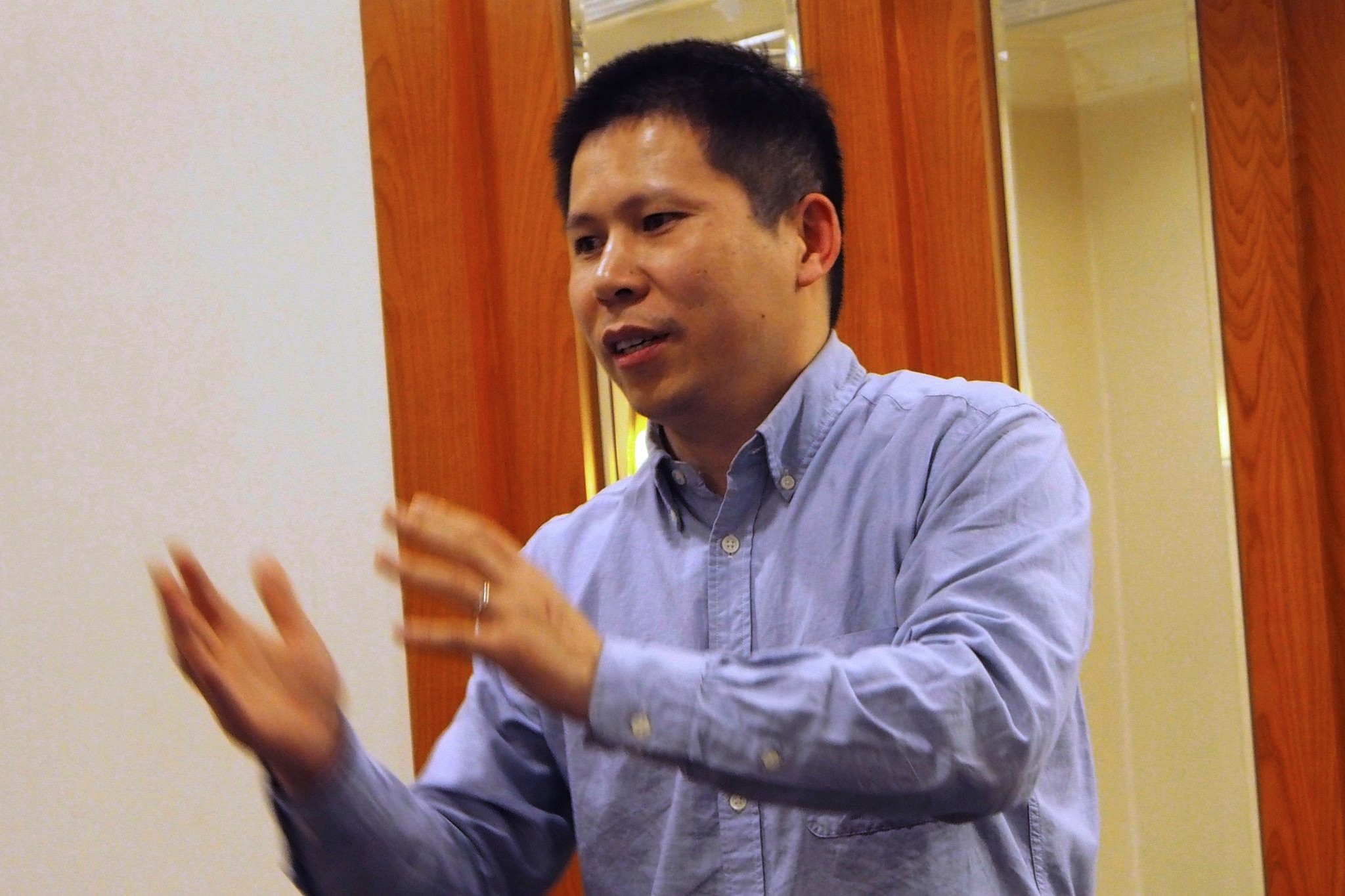
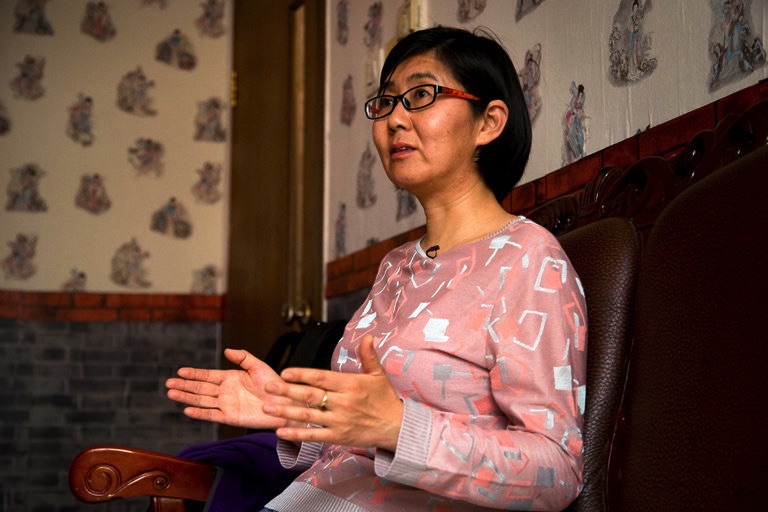
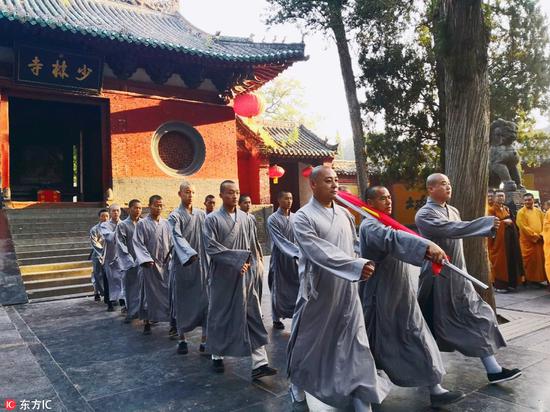 All photos:
All photos: 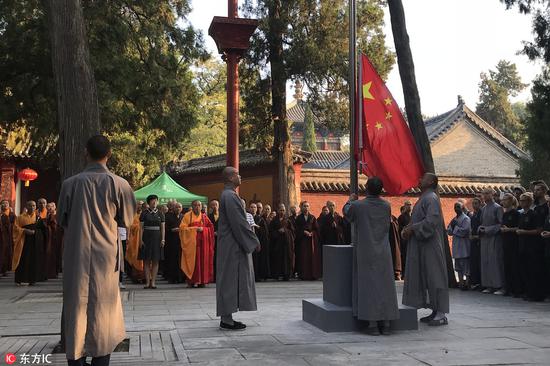
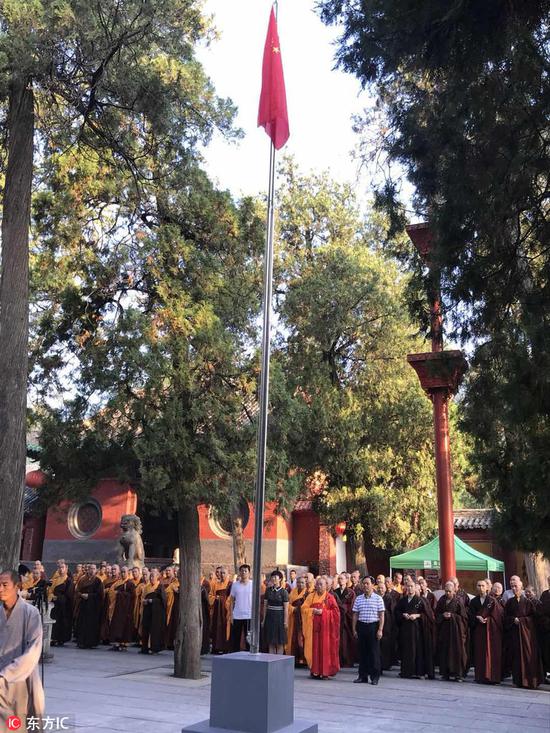
 Source: Gilles Sabrié, The New York Times at
Source: Gilles Sabrié, The New York Times at

What Chinese are talking about … fake news
Some economic development issues are similar around the world. An American local government, faced with declining tax base, ageing population, loss of markets, and little ability to change the course of history is faced with tough choices. New Zealand is in a similar spot, with respect to China and the English-speaking west. But American local governments usually don’t have to deal with fake news stories planted by enemies in the town next door.
Url for the New Zealand Herald article –
https://www.nzherald.co.nz/nz/news/article.cfm?c_id=1&objectid=12205347&ref=clavis